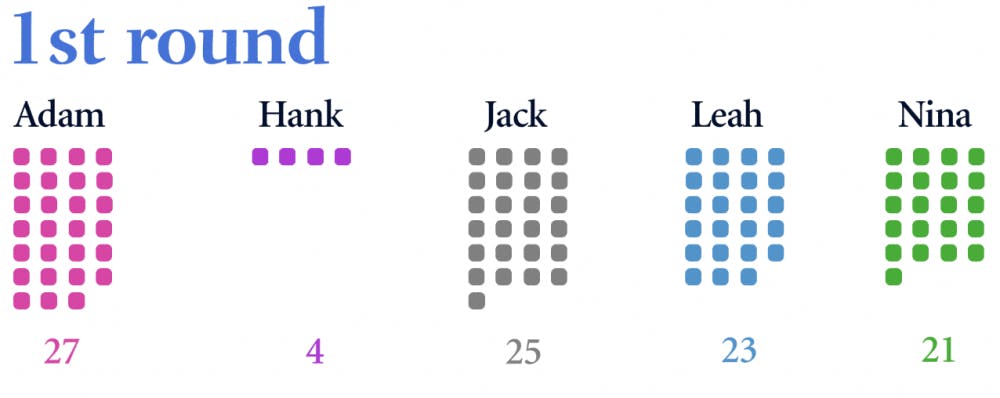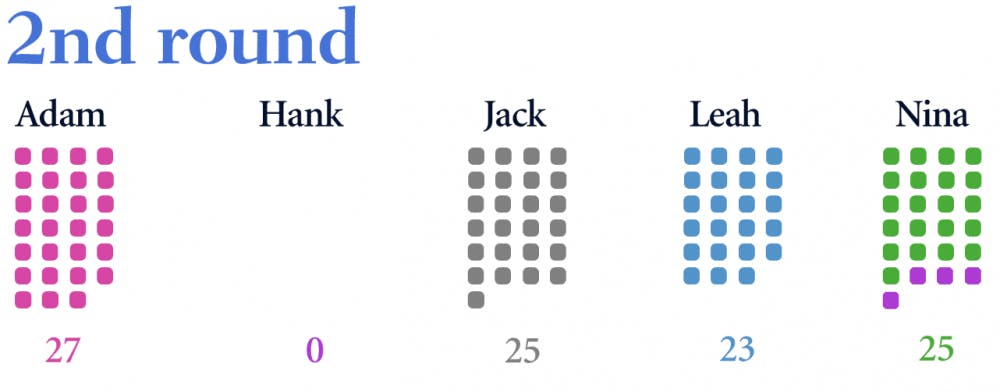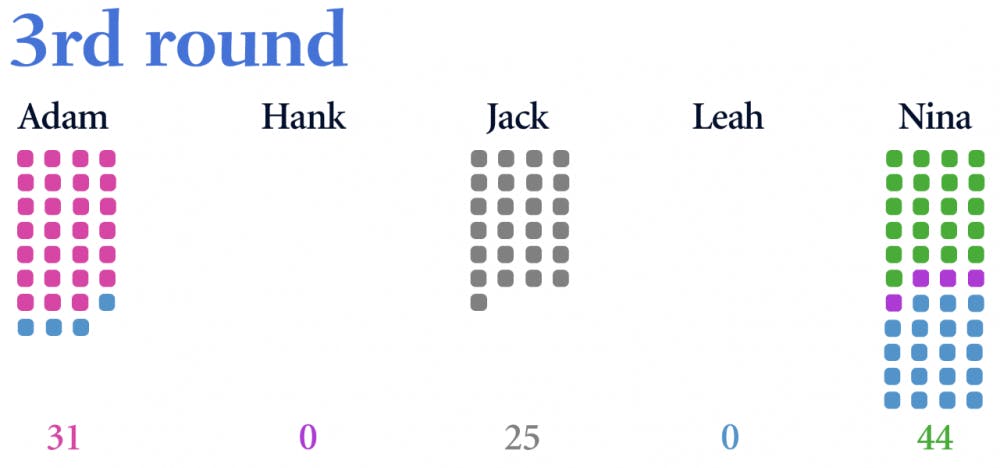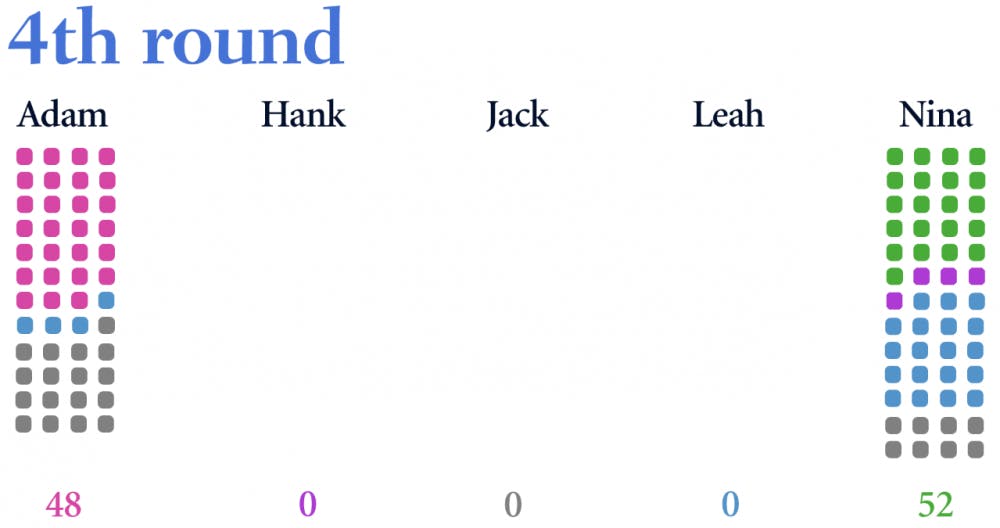On March 8 and 9, Duke students can participate in elections for Duke Student Government president and executive vice president. The elections work on a system called instant-runoff voting, which can get a little complicated. So, here's a breakdown.
1) Ranking, not voting
The first thing to understand about IRV is that you rank the candidates. If no candidate gets a majority of votes in the first round, the candidate with the fewest votes will be eliminated and their votes will be split among the remaining candidates based on who their voters ranked next. Each round of IRV works like this until one candidate gets a majority. To explain how IRV works, I will be using an example election between five candidates—Adam, Hank, Jack, Leah and Nina.

In the 1st round, Hank received the least amount of votes. So, for the four people that ranked Hank as their 1st choice, their votes will now go to their second choice. In this scenario, all four of the people that ranked Hank 1st had Nina as their 2nd choice.

After the 2nd round of IRV, Leah is left with the least number of votes, so her votes will be split in the next round. In this scenario, four people who put Leah as their top choice selected Adam as their 2nd and 19 people put Nina as their 2nd choice.

Still, no one has a majority, so we have to conduct another round of IRV. From this round, we see that Jack is left with the least number of votes, so his votes will be split. Seventeen of Jack's 1st choice voters picked Adam as the next available candidate while eight picked Nina.

So, in our dramatic simulation, Nina squeaks by with a slight majority.
2) IRV can be dramatic
Winning by a handful of votes is not uncommon with IRV. In the most recent Young Trustee election, senior Amy Kramer won by less than 100 votes in the third round of IRV. More than 3,700 students voted in that election. Similarly, in a DSG presidential election two years ago, Tara Bansal, Trinity '17, won with 51 percent of the vote in the second round of IRV against one other candidate. That same year, then-first-year Sean Bissell won his election for vice president for academic affairs by less than one percent of the vote.
3) You don't have to rank all the candidates
Last year, then-junior Erin Taylor filed a petition against then-Attorney General and now presidential candidate Sabriyya Pate, who administered elections, alleging that being required to rank all three DSG Presidential candidates infringed on her free speech by making speech compulsory. In the case, the DSG Judiciary decided in favor of Taylor and now, students are not required to rank all the candidates.
Get The Chronicle straight to your inbox
Signup for our weekly newsletter. Cancel at any time.
Class of 2019
Editor-in-chief 2017-18,
Local and national news department head 2016-17
Born in Hyderabad, India, Likhitha Butchireddygari moved to Baltimore at a young age. She is pursuing a Program II major entitled "Digital Democracy and Data" about the future of the American democracy.
